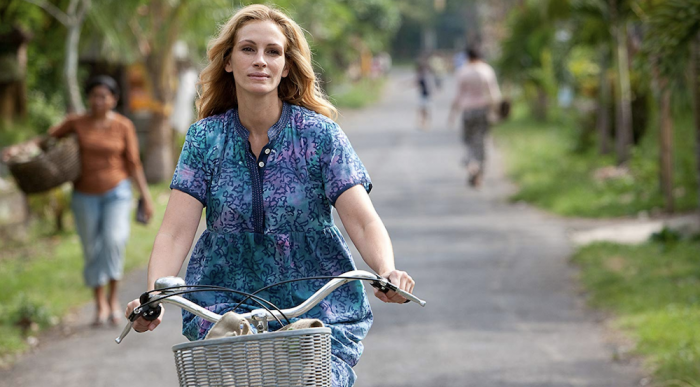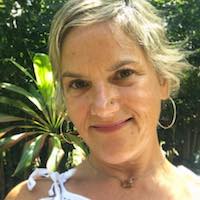The pueblo comes alive on Sunday nights, even in the oppressive heat of summer.
As nighttime falls, the pulsating sounds of banda music and the old-time romantic strains of Vicente Fernandez fall into an uneasy harmony with the chirps of geckos and the buzz and hum of cicadas.
All around, life is expressing itself, born into and out of the thick, still ocean air.
Everything, it seems, is sweating.
The backs of my hands and the back of my neck drip and shine as I take each item of clothing out of the laundry basket to hang on the line. I know that they won’t dry overnight, in this heat, but there are so many loads to do, so I just keep moving them along.
They are not my clothes. They are the clothes of two little boys, two new friends, who have been essentially deserted in this dusty town. Their father, overwhelmed with PTSD after fighting in Afghanistan, left in a cab one day, saying he would come back soon. Their mother seems to be doing all she can just to stay alive, including sending the kids off daily to find work for food.
As I pull each piece of clothing out of the basket—a ripped and stained shirt, a ragged pair of pants, spider-man pajamas—and clip each one to the line to sway in the symphony of sound that fills the night, I feel engulfed in a love so powerful it makes me feel faint. I pause for a moment, allowing this profound love for these little boys to wash over me, through me—a love for them that is so complete, so penetrating, it feels as if my sweat itself has turned into this love. I reach my hand deep into a tiny pant leg to pull it right side out, and a thought hums through the night: I have a heart-shaped uterus.
I sit for a moment, leaving a pile of damp clothes in the basket, suspended in time and space as my mind retreats backward several years, back to when I was trying to have a child of my own.
I am at Seattle Reproductive Medicine. The entire building smells vaguely chlorinated, like the smell of a fancy hotel lobby. I see the green of well-tended potted plants and the emotional shades of all the people coming and going, all in different states of waiting—some nervous, others giddy or optimistic, some heartbroken, others despairing or resigned.
I had been in all of those places, and, in the end, after walking into that lobby countless times, after being poked, prodded, counseled, cajoled, anesthetized, and awakened, I knew that world was not mine and that I never wanted to climb those stairs again.
The kids ask me, “Why don’t you have children of your own?” I tell them that we tried, that we wanted to. I don’t tell them that I might have been too old, that I might have had polyps, that I might have just been infertile, that I had a heart-shaped uterus. They nod as if they understand. And maybe, somehow, they do.
During that time of grappling with infertility, the “heart-shaped uterus” was the most poetic thing I heard, standing out amongst all the other beautiful and ugly things I heard at the same time: “God has another plan for you,” “You are the best aunt,” “You are too high-strung to have a child,” or, from those good ol’ yoga folks, “You are too pitta. Maybe you should change to an Ayurvedic diet.”
The one that always got me the most was one that was never said directly to me, but was one that I heard often: “You will never know love if you don’t know the love of a mother for her child.”
Look it up. You’ll find it in articles, speeches, and memes. While the intellectual side of me knew that was probably one of the more ridiculous things I had ever heard, knew the impossibility and conceit of that thought, something within me still withered in the wanting.
And yet, I also knew that I had already known that love. Something in my heart always pulled me back to the first time I had that experience of ultimate, unconditional, “I would die for you” love.
I was 18 years old and had been named the godmother of the first grandchild in our family. I recall it as if it were yesterday—holding Nathaniel in my arms, tucked inside the long trench coat that was an early ’80s fashion mainstay. We are standing on a hill next to the farm where my brother and his wife lived, they themselves only in their early 20s. It is a cold fall day, and Nathaniel’s nose and cheeks are cool and red, his breath warm against my neck as I protect him inside the fortress of my coat, pressed against my chest, my heart. To this day, nearly 40 years later, I can close my eyes and feel the wash of that moment, that knowing, I love you more than I have ever loved anything in my life.
There would be many more of those moments to come—my other nieces and nephews, my neighbor children here in the pueblo who call me their “segunda mamá,” and now these little lost boys.
Even so, I came to understand more fully what it was that I wanted in my own child and why I still carried grief and longing. What I wanted was one that looked like me, one that I could shape, that I could mold, one with whom I could have a certain type of intimacy, one for whom I was the center of the universe. One who, at the end of the day, was my creation, and therefore reflected my own ego. I wanted an attached kind of love; I wanted them to need me and only me. I didn’t want to be segunda mamá; I wanted to be primera mamá.
This is a natural desire, and one that is conditioned—biologically, but also socially.
I began to untangle this desire the first time I got to be in the presence of my beloved teacher Ram Dass. I remember walking into the room where he was and nearly falling to my knees. The love he was directing toward me was palpable, almost too much to bear. He looked at me with that penetrating look of love, a hallmark of his teachings, and then said to me, “I love you. I love you so much,” and held my gaze, unselfconsciously, the way a parent gazes on their child.
“I feel that, Ram Dass,” I said, and knew in that instant that I had been changed by this moment, by the depth of this absolute, unconditional love. But then he turned to the wall and placed his hand on it. “I love this wall,” he said, and then rubbed his hand along the smooth plastic of his wheelchair, “and I love this chair.”
He looked up and waved his arm through the warm tropical air and said, “I love all of this.” His eyes sparkled and shone, and he returned his gaze to mine, smiling.
I wasn’t sure what to say or do or think. Just for a moment, his love for me felt cheapened, calculated. His love for me was no longer special. Was there really no difference between me and the wall, the chair, the air?
But Ram Dass was teaching me one of the most important lessons my heart has ever heard. That there is another kind of love, without attachment, without ego—an impersonal love that is not cold or calculated, that has no boundaries, that transcends our ego identification.
It is a love that allows our hearts to break open for all of humanity, for children who come into our lives, hungry for care and kindness. In fact, because we have limited ourselves by directing or experiencing that kind of love only in relationship with our own children, we come to believe that it is they who are generating that capacity for love within us. And with that belief comes the idea that those who do not have children will not experience it.
But who wants to argue over love and who can experience it and how? We can’t ever know another person’s inner experience. What we feel as the somatic experience of love inside of ourselves might be exactly the same or wholly different from the way another person’s inner life reveals itself through sensation.
We can all know, feel, and be brought to our knees by the experience of loving and of being loved. We can cultivate within ourselves the imperative to act out of and into this love. We can see that all of humanity longs for the same thing: to be loved, to be nourished, to be fed, to have their clothes washed and hung, to have their dignity restored, to be seen as the most precious being ever to exist—simply because they are, not because they are yours.
A heart-shaped uterus—a bicornate uterus—is a uterus that has not formed the way most do. Instead of being pear-shaped, it dips in the middle, forming a heart shape. This heart shape can make it more difficult to retain pregnancies, because the embryo finds nowhere to attach. A heart-shaped uterus defies attachment.
I have finished hanging the clothes. The geckos still chirp and the music still plays. Sounds of roosters and familial joy float all around me, even this late at night. My skin is wet—from the laundry, from sweat, but now, too, from the rain, just beginning. The sky has birthed a downpour, and the clothes just hung are now smiling under the soaking rain.
I sit on my porch, the rain pours down, and my heart is on the verge of exploding with love for these children, for this opportunity, and for my heart-shaped uterus that has allowed me to know a secret of the universe: the knowledge that this depth of love is for all of us, that this capacity to love and be loved is as close to us as our own sweaty skin. We need only lean in to what deviates from the standard story.
I am back to the moment when the boys asked me why I did not have children of my own. They all look at me, somewhere between uncomfortable and compassionate.
Finally, one says, “Maybe you weren’t supposed to have kids, so you could look after all of us.” “Maybe,” I say. Then, the younger one, just 10 years old, follows up; “My mom says some people are not supposed to have kids, because God has a different spiritual path for them. I think that God has a different path for you, Molly. I think this is your spiritual path.”
He spools another forkful of spaghetti covered with bacon and jams it into his already full mouth.
“Maybe,” I say.
The rain pours down, my love rises up, the music still plays, and I know that this experience of love is as deep as it gets.
And I am full.

 Share on bsky
Share on bsky







Read 28 comments and reply